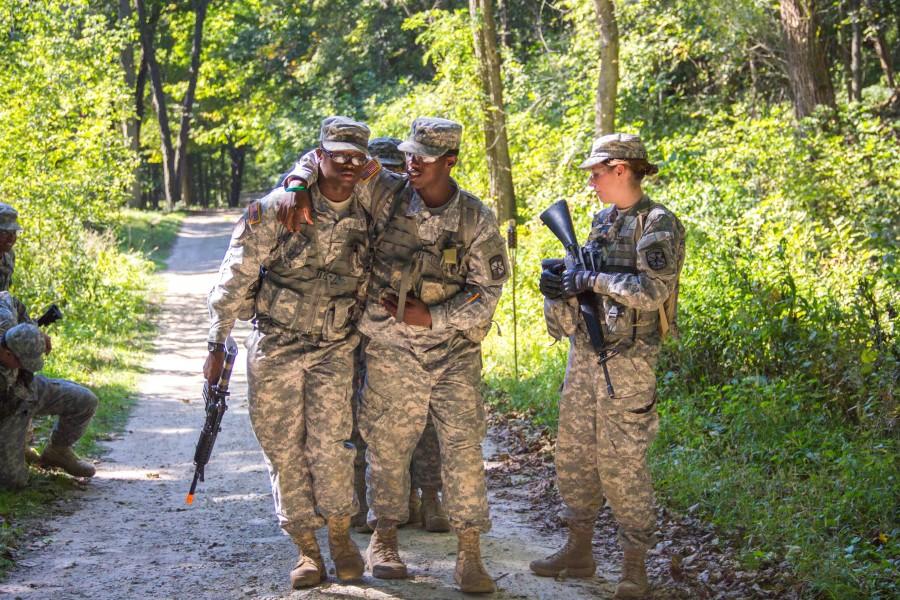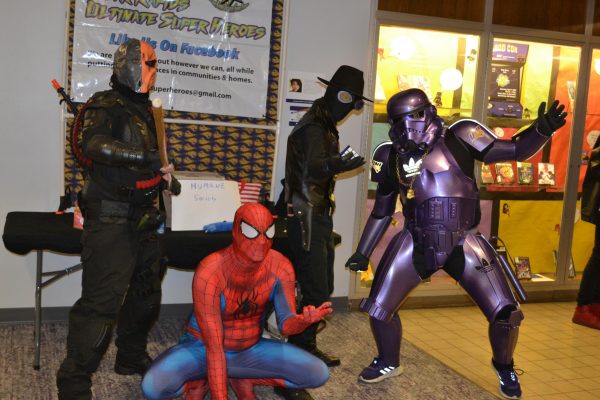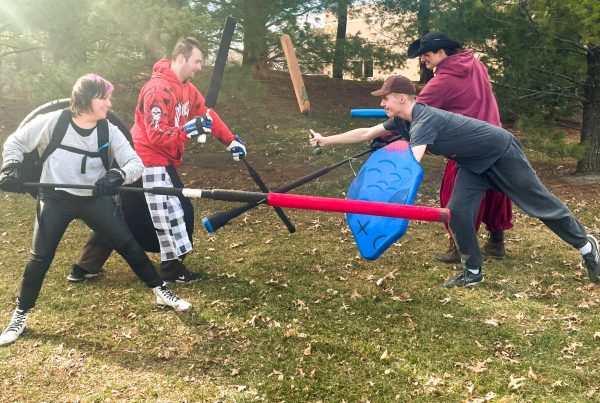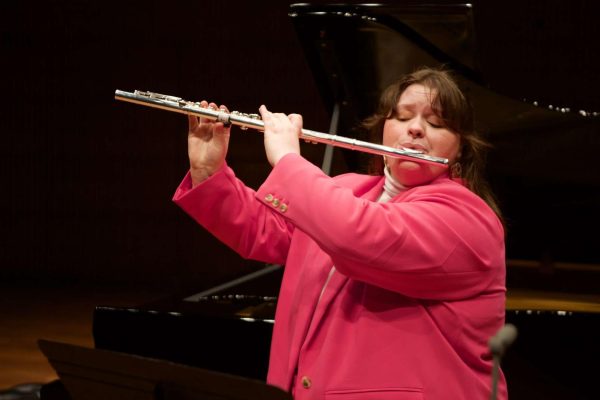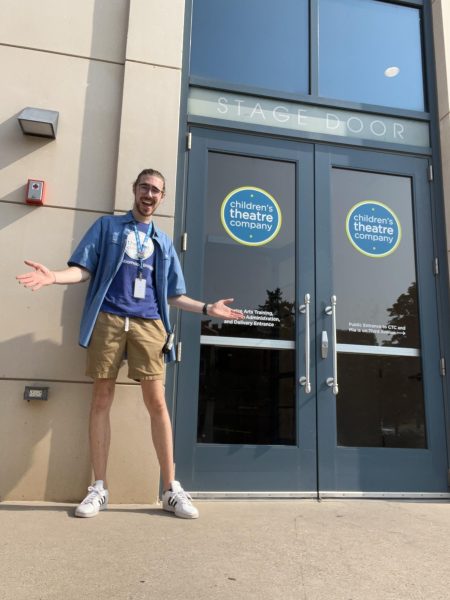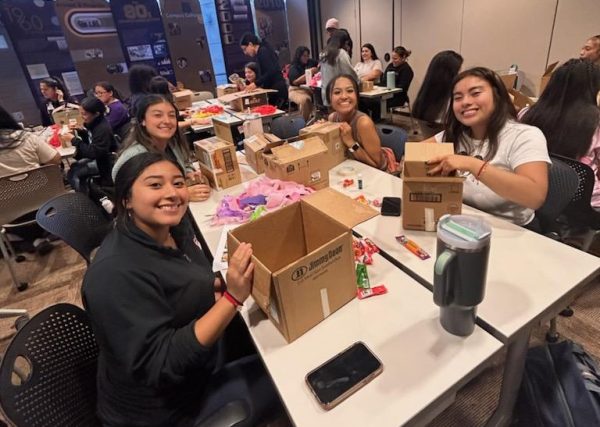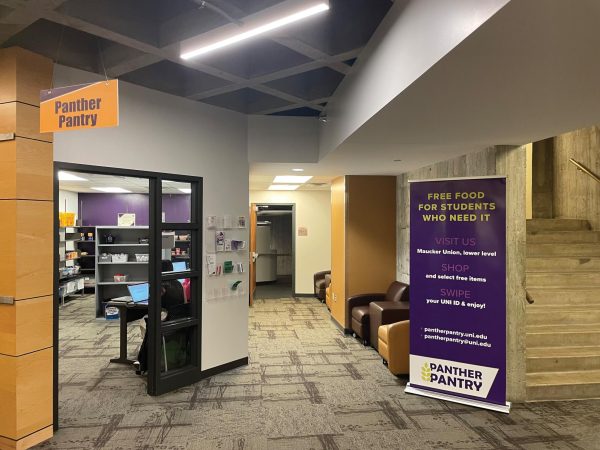ROTC fall training
Oct 5, 2015
Calls of “BOOM we just hit an IED!” “Contact contact contact” “BANG BANG BANG BANG” and “LOA” rang out at Camp Ingawanis in Waverly as the ROTC held their fall semester leadership training exercise last weekend. A total of 13 cadets from UNI, 41 cadets from the University of Dubuque and 19 seniors acting as Observer Trainer Mentors (OTMs), came to the fall semester training.
The training ran from Sept. 25 to Sept. 27 and covered various simulations, operations and topics.
“We do a lot of stuff tactically that actually happens. Most is to prepare them for the cadet leader course that all the juniors have to go through their summer year before they’re seniors,” said Cadet Julianna Pople, senior criminal justice major at the University of Dubuque and MS4 Cadet Captain Public Affairs Officer.
“We cover a lot of tactical operations so they’re going to be put in different situations,” said Dustin Smith, senior industrial technology and education major, and executive officer of the senior MS4 class.
The main situations were key leader engagements, reactive contact and combat lifesaver. Key leader engagements entailed speaking with someone from a different culture in order to retrieve information from them in a respectable manner. Reactive contact covered how to do maneuvers with your squad while under fire. Combat lifesaver covered medical operations.
“They learn all the basics from freshman year, and by their junior year they should know tactics like the back of their hand,” said Popel. “They should be perfect at it. They should be able to plan something and execute it with no problem.”
To keep all the information, techniques and formations fresh in cadet’s minds there are camps for each level of students. As sophomores, cadets go to Cadet Initial Entry Training for three weeks. As juniors, they go through Cadet Leadership Course for a month.
The main thing Smith wanted the cadets to take away from the training would be leadership experience.
“They get aligned with students from other schools that they don’t know,” said Smith, “so they’re going to be put in a position where they’re leading somebody they don’t know. So it’s going to put them out of their comfort zone and . . . in different situations to see what decisions they make [and] how they can affect a mission.”
For a senior, the focus was on the planning process for the training. “We’ve been planning this for two months now,” Smith said. “Now we’re finally conducting the mission, but there’s a lot that goes into planning. We’ve learned a lot throughout the process of it.”
Almost everyone was in army uniform with a few exceptions. Those in civilian clothing were volunteering to participate.
“We’ll have college kids that are sophomores and freshmen that are interested, so they’ll want to get contracted or scholarshipped and they stick with the program, but if they don’t get scholarshipped by first semester junior year they’re out of the program,” said Popel.
In order to get a scholarship, one has to be physically fit, pass a swim test, have a good GPA and be an American citizen.
Students involved didn’t have to pay anything in order to participate.
“It’s just part of curriculum we don’t have to pay for anything except for our own snacks,” said Popel. “Army pays for the food, Army pays for the gear, Army pays for the training time, and we just have to participate.”
Smith has enjoyed being able to connect with students across the nation through his own summer camp experiences.
“I’ve enjoyed just being able to travel and meet new people,” said Smith. “I meet people all the time from everywhere in the country. I know kids from just about every major university in the country from my summer training.”
For Popel, the camaraderie has been her favorite part of the ROTC.
Popel talked about the bonds they create throughout the four years of the program. Because they see each other through the early morning workouts, classes and even social events like parties or football games, many members develop strong friendships and bonds with one another.
“Everything we do is together: eat, sleep, even use the bathroom together; because they have to use the buddy teams so two people have to be together at all times. You get really, really close from freshman year to senior year. It’s four years all day every day together,” Popel said.
Popel has also appreciated the opportunities she has had through the ROTC.
“I know that this is something not every average teenager is ever going to do,” said Popel. “We get to fire weapons, we get to play with ropes, swing from trees, so many fun things. Fire machine guns— that was a lot of fun.”
Popel said participants in the program are also taken care of financially throughout their years in college.
For students considering doing ROTC, Smith said, “come out and give it a shot and take the lab class and kind of get a feel for what the program’s all about.”


